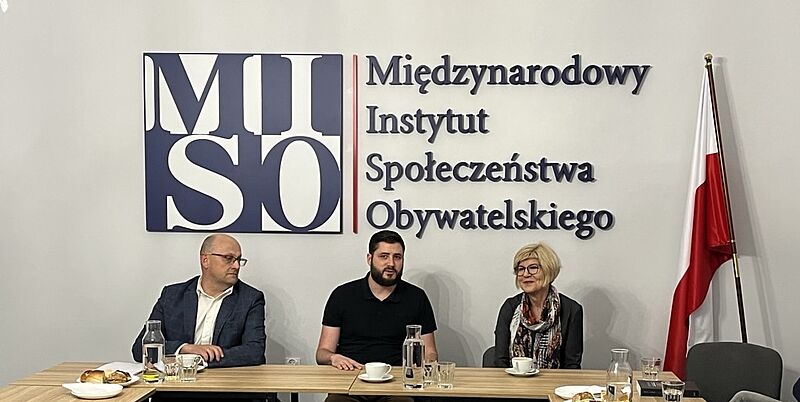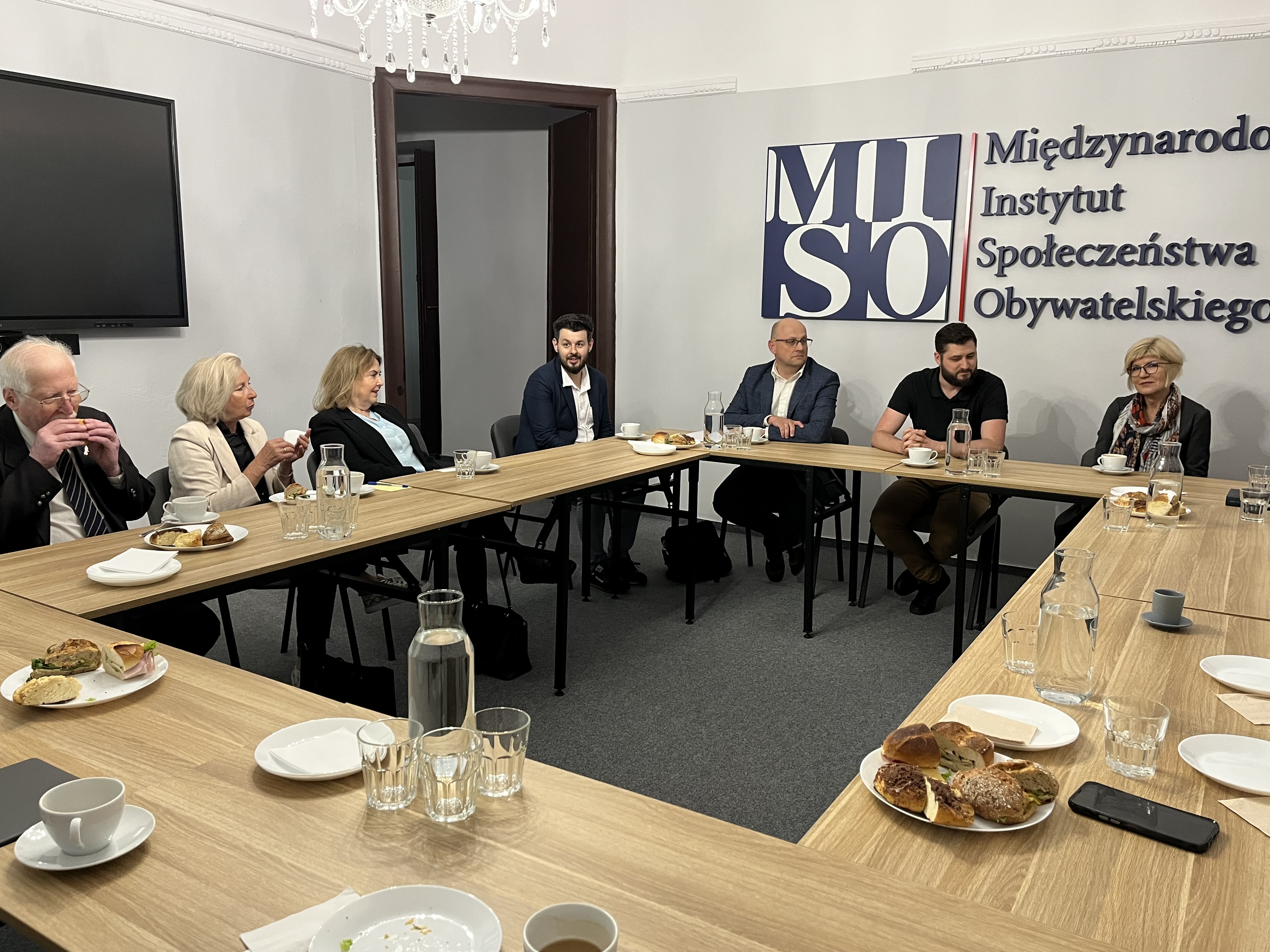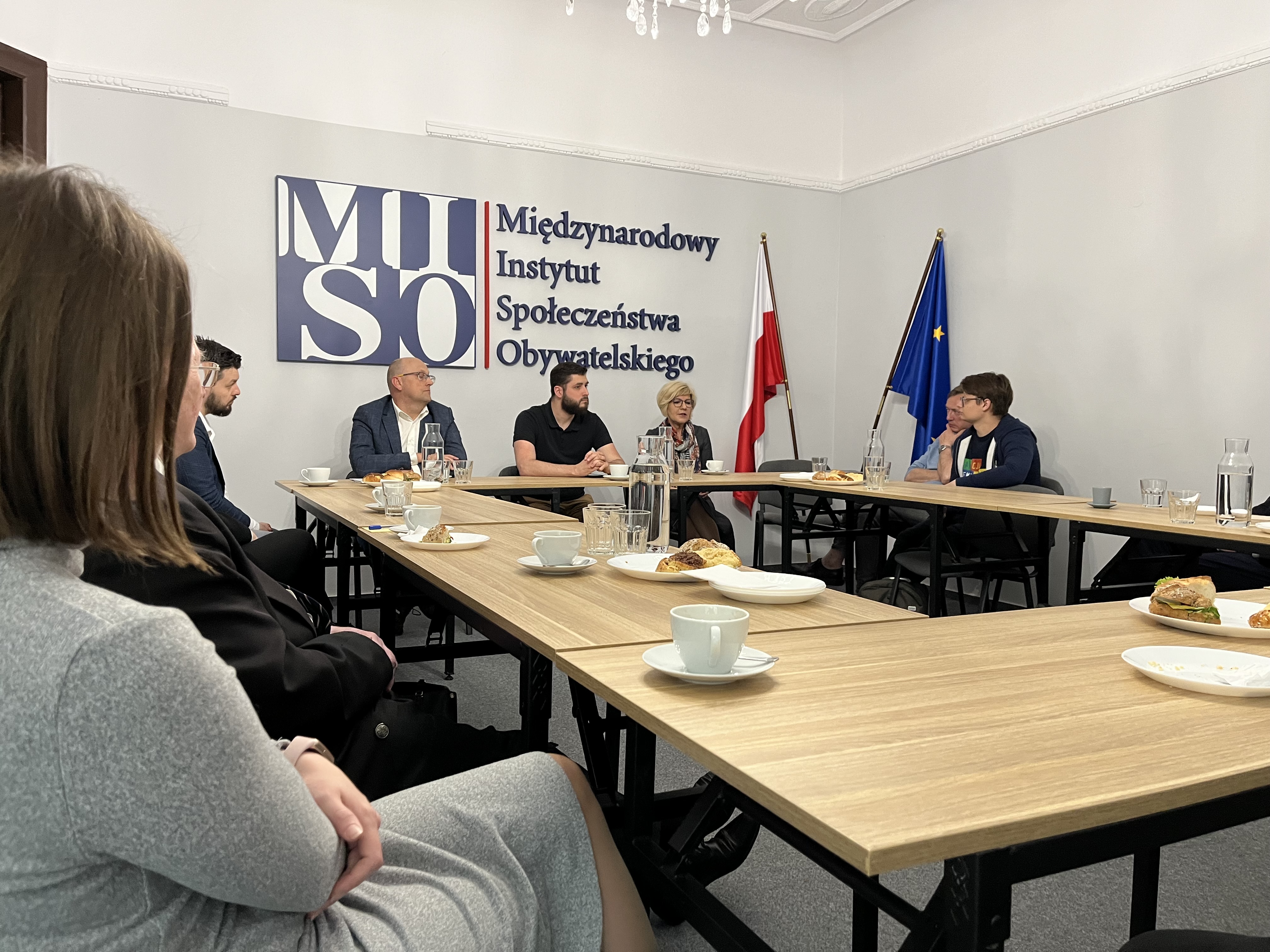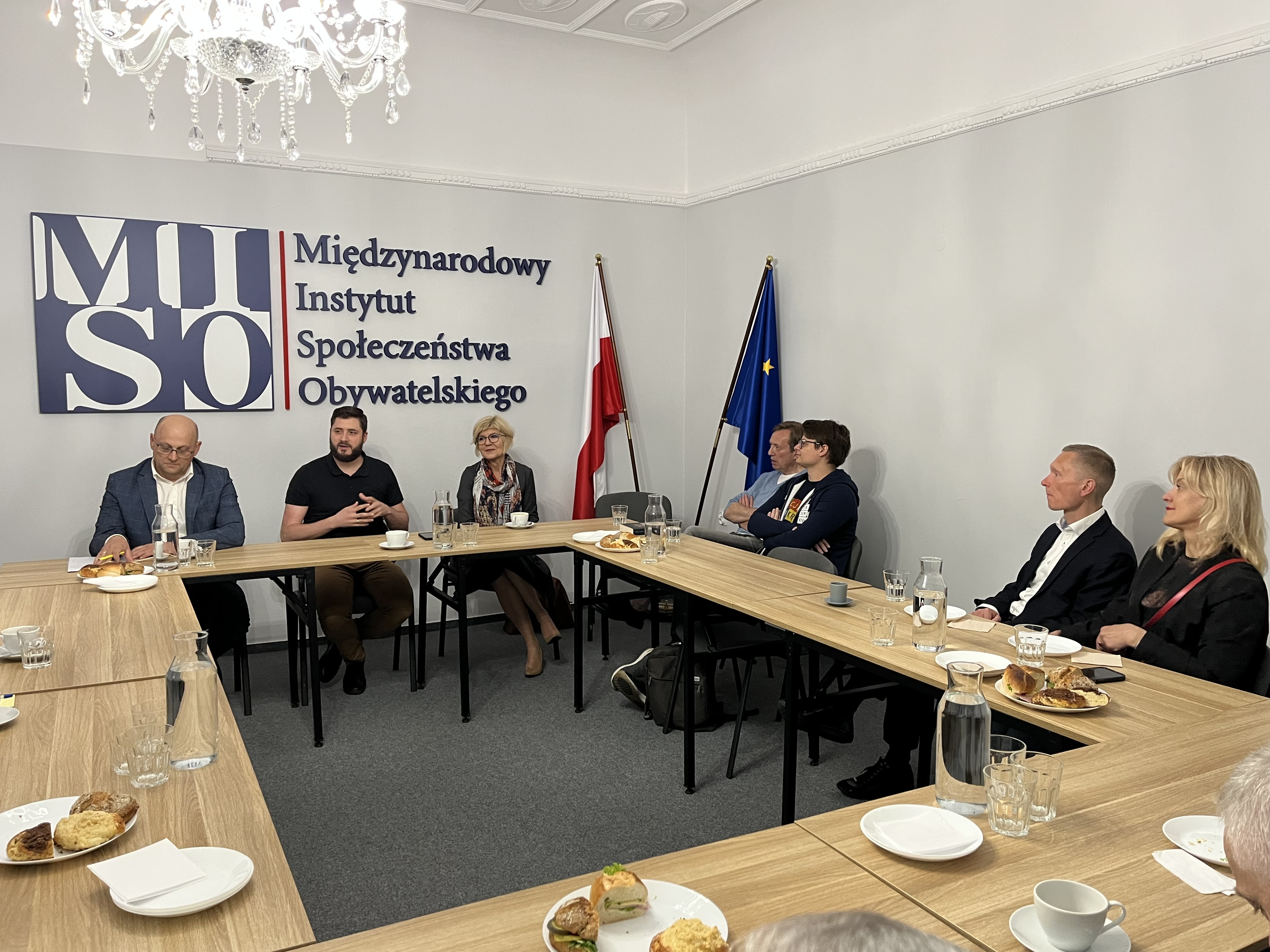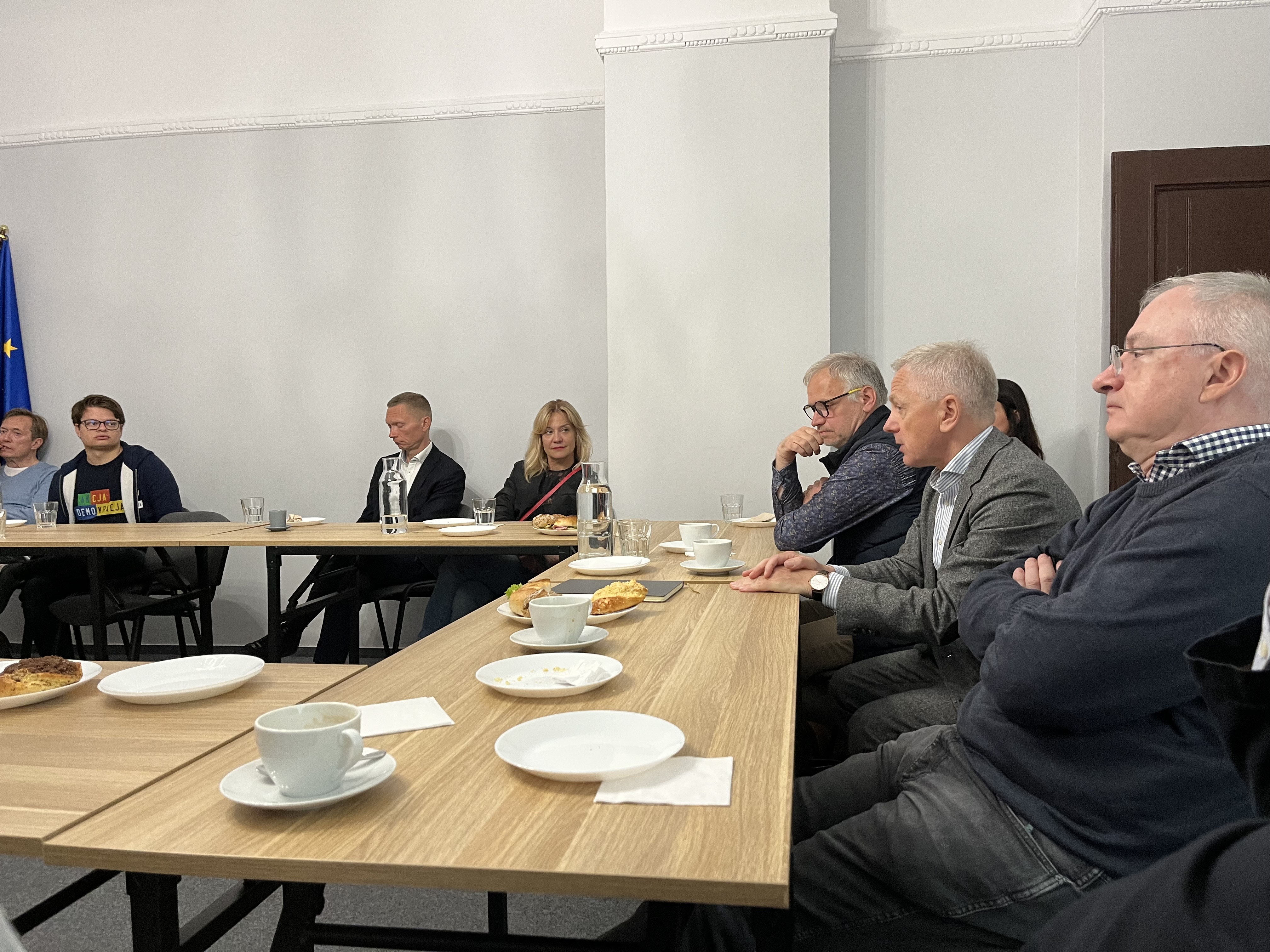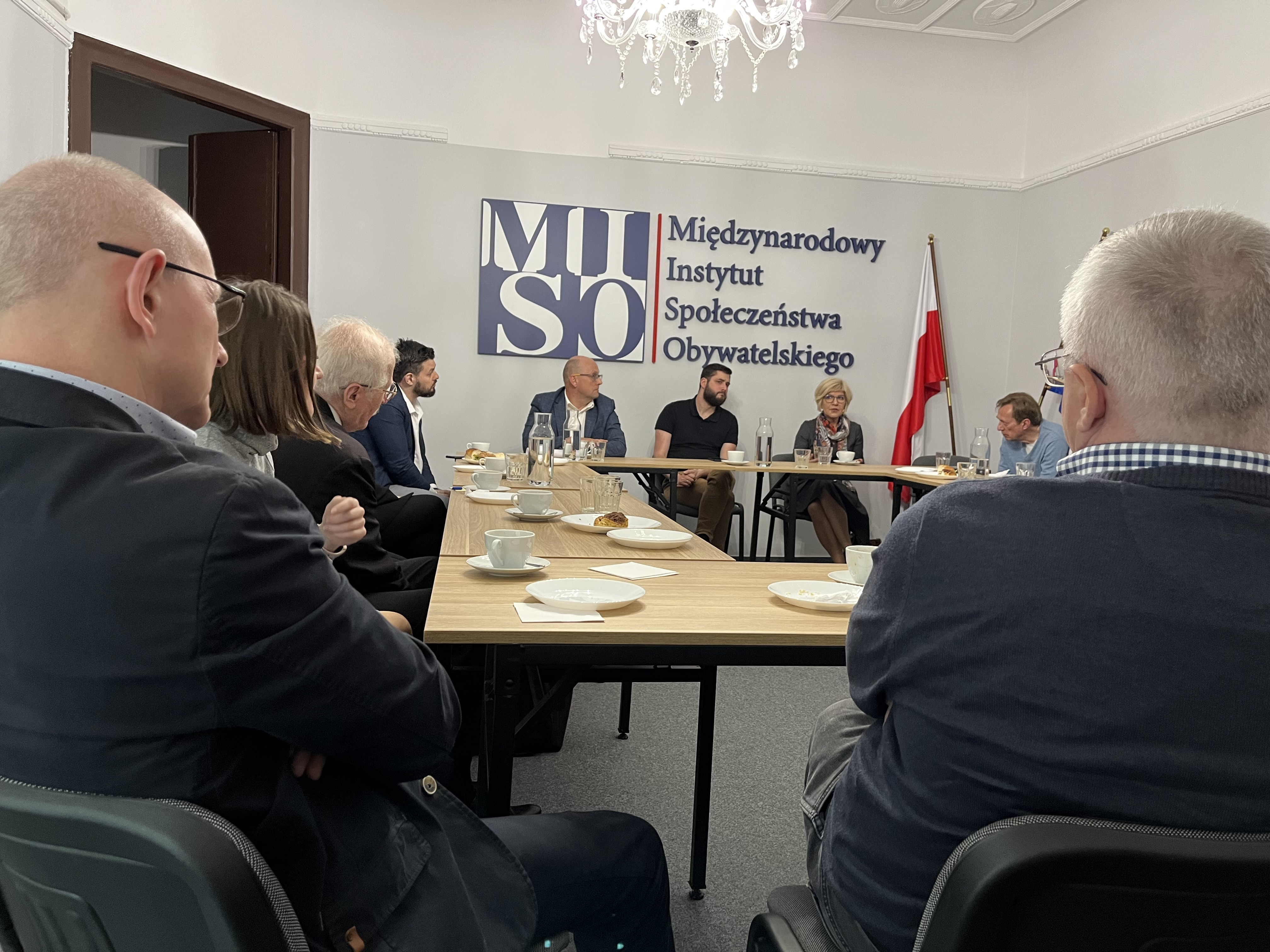MISO BREAKFAST WITH REPRESENTATIVES OF LEX SUPER OMNIA PROSECUTORS' ASSOCIATION
The meeting was attended by members of the MISO community, representatives of NGOs and business, as well as academics. The meeting was opened and moderated by Mateusz Komorowski, Founder & President of MISO.
In her introductory speech, Prosecutor Katarzyna Kwiatkowska outlined the history of the establishment of the Association, which was registered in January 2017. One of the main objectives of the organisation is, inter alia, to support activities for the realisation of the principles of a democratic state of law, striving to ensure the subjectivity, independence and autonomy of prosecutors in decision-making, promoting the rule of law and popularising the law among citizens.
Until 2016, no political party chose to propose a new law on the public prosecutor's office. The 1985 Act, which had been amended several times, was in force. That law, as well as the current one, which came into force on 4 March 2016, are based on axiological assumptions relating to the post-Soviet prosecution model, the task of which is to carry out activities related to the consolidation of a particular vision of the state, pushed through by the ruling system - K. Kwiatkowska said. Therefore, the Association has drafted a new law on the prosecutor's office, based on European Union standards. A public presentation of the draft law is planned in the first instance for social organisations and citizens.
In our draft, the prosecutor's office is to be an organ of justice upholding the rule of law and human rights and freedoms. The prosecutor is to respect the dignity of participants in the proceedings and in his or her actions be guided by the principles of impartiality, equal treatment and prohibition of discrimination.
In our view, the prosecutor's office cannot function as a law enforcement agency. For many years, the prosecution community has been calling for the prosecutor to be treated first and foremost as a guardian of the law and not as an “investigator” or “super police officer”.
We want the prosecutor to act on behalf of society and in the public interest, with respect and protection of human rights and freedoms. We want the prosecutor's office to have a “human face” - the President of the Lex Super Omnia said.
The guests at the 'MISO Breakfast' had an opportunity to learn about the main demands of the 'Lex Super Omnia' association, which are found in the new draft law on the Public Prosecutor's Office and are based on four pillars: independence, accountability, transparency, social control:
- the separation of the functions of Prosecutor General and Minister of Justice as a guarantee to ensure that the tasks of the prosecution service are carried out objectively and impartially insofar as they relate to upholding the rule of law and protecting citizens' rights, particularly in their dealings with state organs.
- the prosecutor's primary duty is to exercise the function of public prosecutor before the courts in cases prosecuted by public indictment, exercising control functions over ongoing pre-trial proceedings.
- ensuring that prosecutors are independent in their pre-trial proceedings and make sustantial decisions, free from external interference and pressure; independence being understood not as an entitlement or privilege granted in the interests of prosecutors, but as a guarantee for a fair, impartial hearing of every citizen's case.
- eliminating the possibility of the Prosecutor General and superior prosecutors (heads of units) issuing substantive orders relating to the direction and manner of completion of proceedings, thereby individualising responsibility for the course of proceedings.
- the abolition of official supervision of senior units and the indication that the assessment of the prosecutor's performance will be subject to judicial review and periodic evaluations.
- strengthening the role of the prosecutors' self-government at all levels of the prosecution service.
- establishing the General Council of Public Prosecution Service to uphold the independence of assessors and prosecutors, interacting with communities representing citizens, non-governmental organisations.
- the establishment of the Social Council with an advisory and consultative role, which will include representatives of, among others, NGOs and civil organisations.
- abolishing the five-tier structure of the prosecutor's office to eliminate excessive bureaucracy resulting in lengthening the decision-making process and expanding the system of control and supervision.
- eliminating pathologies in personnel matters by ensuring a balanced career path, competitive promotions with specific criteria taking into account not only seniority but also the competence and knowledge required for a particular prosecutorial position, tenure in management positions, elimination of discretionary awards and all other benefits that constitute institutional corruption of prosecutors.
- ensuring the right of prosecutors to speak out in public debate on matters concerning the rule of law, legislative changes, the functioning of the prosecution service.
The meeting ended with questions posed by “MISO Breakfast” participants to the invited guests.
Summing up the meeting, Mateusz Komorowski pledged the support of the MISO Foundation and its involvement in the pro-civil rights initiatives carried out by the Association of Prosecutors 'Lex Super Omnia'.


